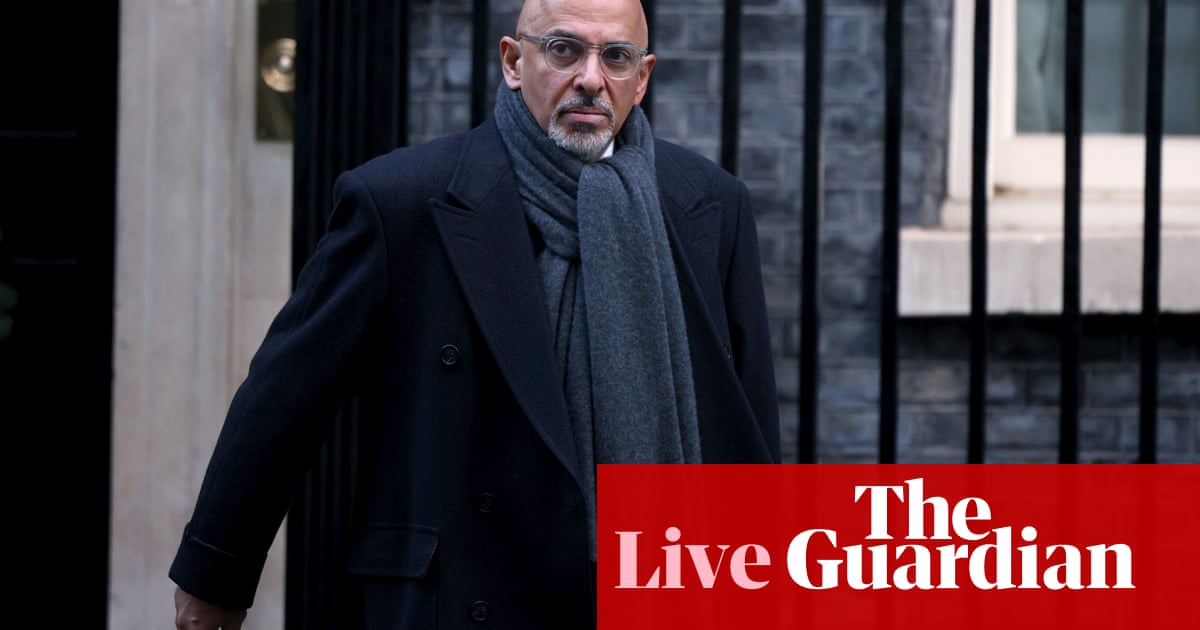
Early evening summary
Boris Johnson has confirmed his government will impose a manifesto-busting £12bn-a-year package of tax increases from next April to tackle NHS Covid backlogs and overhaul social care.
Johnson is set to comfortably win a vote on his plans scheduled for tomorrow evening after Conservative MPs with reservations about the tax increase rallied to his side. Over the last week, as leaks emerged about what was planned, many Tories spoke out about the proposals - either in unattributable comments to journalists, or in interviews. The Tory MP Stephen McPartland said this afternoon that, given what he knows at the moment, he could not back the plan.
But even McPartland has not said he will vote against the plan tomorrow, and the rebellion expected by journalists has fizzled out. The PM’s decision to link the national insurance hike not just to social care, but to rescuing the NHS, seems to have had a significant impact. (See 3.30pm.)
Sajid Javid, the health secretary, has admitted that it may take longer than three years to clear the backlog for NHS operations. The government has said that over the next three years the bulk of the £36bn raised over that period by the new tax will go to the NHS, to help it recover from Covid. (See 12.50pm.) At a news conference in Downing Street, Javid said that over time more of the money would go to social care and less to the NHS. But he could not give details of how the money would be allocated over time and, when asked if the backlog would be cleared in three years, he said: “We’re going to try and tackle as much of the backlog as we can.” This is from my colleague Peter Walker.
And this is from Sky’s Kate McCann.
Johnson has said that he does not want any more tax rises this parliament - but he has refused to rule them out. (See 4.39pm.)
Rishi Sunak, the chancellor, has said the tax increase is required because today’s decision means there is a “permanent new role for the government” that needs to be funded. (See 4.14pm.) The Institute for Fiscal Studies says the decision has taken the UK tax burden to its highest-ever sustained level. (See 2.04pm.)
Johnson has refused to rule out holding a reshuffle later this week. Here is LBC’s Matthew Thompson on what this might mean.
Nicola Sturgeon has told civil servants to start making a new case for independence, which offers people “an informed choice on Scotland’s future” in the Scottish government’s first legislative programme since last month’s cooperation deal with the Scottish Greens, my colleague Libby Brooks reports.
These are from the Resolution Foundation thinktank on the PM’s health and social care plan.
The TUC has criticised the government’s decision to suspend the pension triple lock. In a statement Frances O’Grady, the TUC’s general secretary, said:
The UK has one of the least generous state pensions in the developed world.
The triple lock was introduced to close this gap and lift pensioners out of poverty. Suspending it will only halt our progress.
This is a dangerous precedent. If the government is allowed to pick and choose when to apply the triple lock, the result will be lower state pensions for future generations and more pensioners experiencing hardship.
George Osborne, the former Tory chancellor, claims today’s health and social care announcement is consistent with traditional, Conservative “sound money” economics.
According to the FT’s Jim Pickard, Tory MPs do not think any of their colleagues will vote against the £12bn tax increase tomorrow.
This is from my colleague Rafael Behr, who is not impressed by Labour’s response to the PM’s health and social care announcement.
Snap polling suggests public divided over merits of PM"s plan
Two polling companies have produced snap polls on the PM’s plan for health and social care.
YouGov says the public are split roughly 50/50 on whether or not they support the national insurance rise.
And Savanta ComRes has found a broadly similar split - although they asked a different question, and found 46% of respondents saying it was “acceptable” for Johnson to break a manifesto pledge.
This suggests that William Hague, the former Tory leader, may have overestimated the dangers of a party breaking its manifesto promise in his Times column this morning. (See 11.09am.) Perhaps when people voted for Boris Johnson in 2019, the notion that he was a politician who would keep his promises was not central to his appeal.
But Savanta ComRes also found that people thought it would be better to raise income tax than national insurance.
This is from ITV’s Anushka Asthana on the curious silence of the Tory “rebels” on the national insurance hike (or the non-rebels, as they have turned out).
Johnson tries for the second time to wrap up the press conference - this time successfully.
And as he does so he claims he did not answer the reshuffle question (see 4.49pm) because he wanted this press conference to be about policy, not about party political matters.
And that’s it. I will post a summary shortly.
Johnson says he does not think so.
Sunak says the smallest 40% of businesses will not be affected because of the employment allowance.
The next smallest 40% will only face an average increase of £450, he says. That amounts to less than 1% of their wage bill.
He says 70% of the revenue will come from the largest 1% of businesses.












